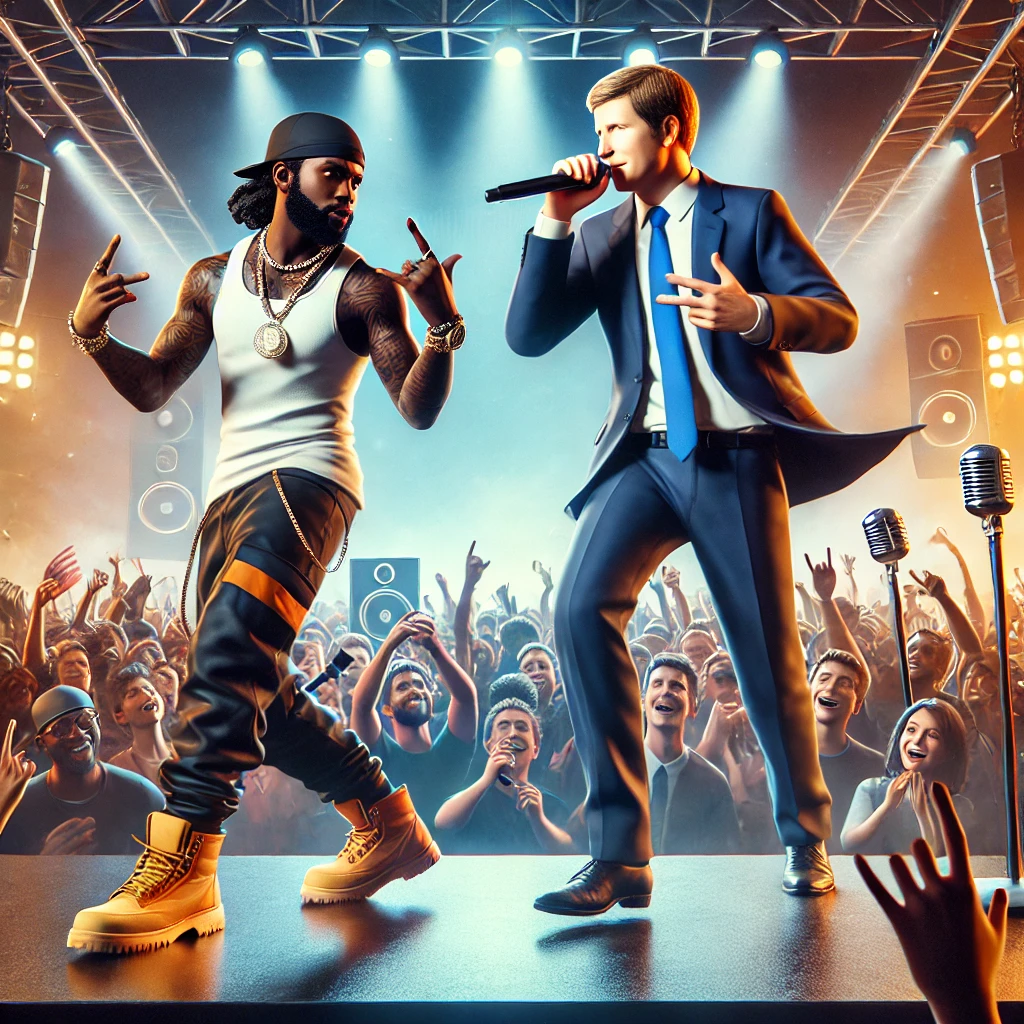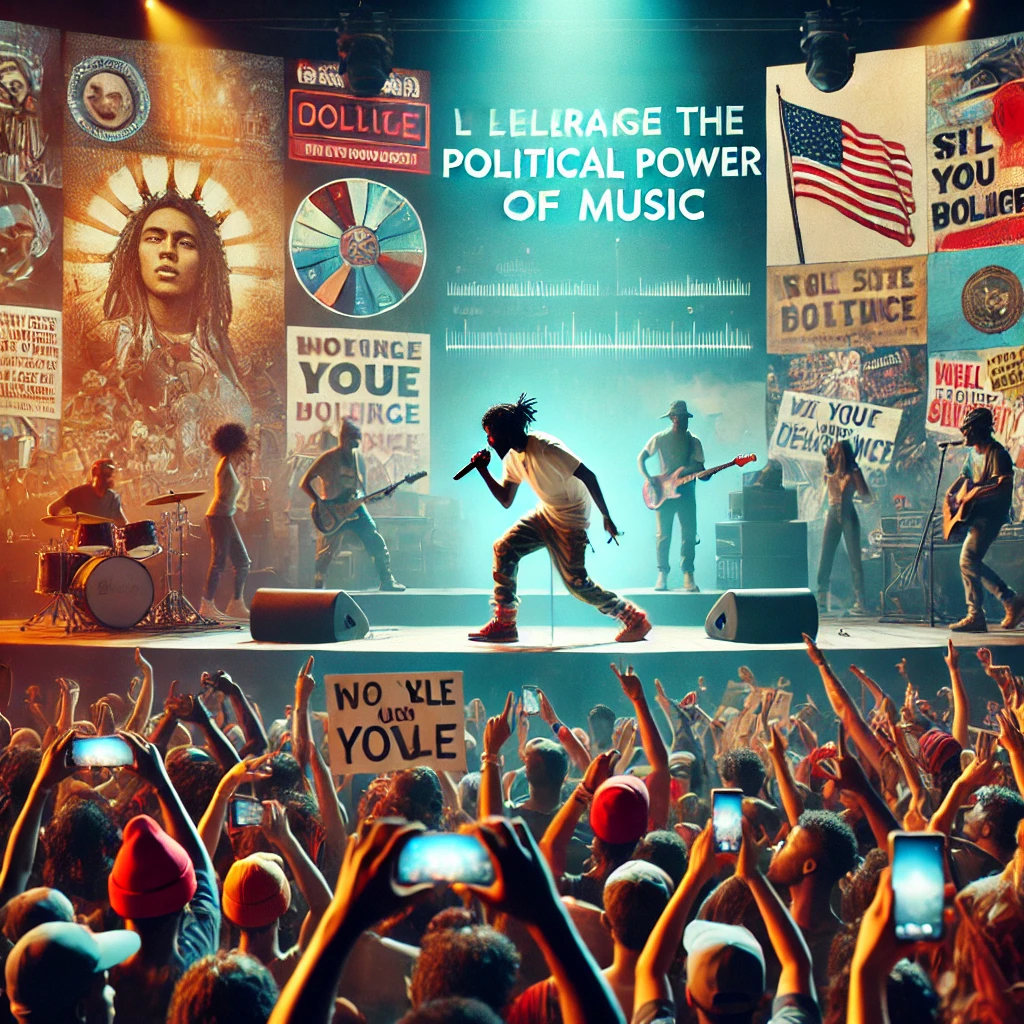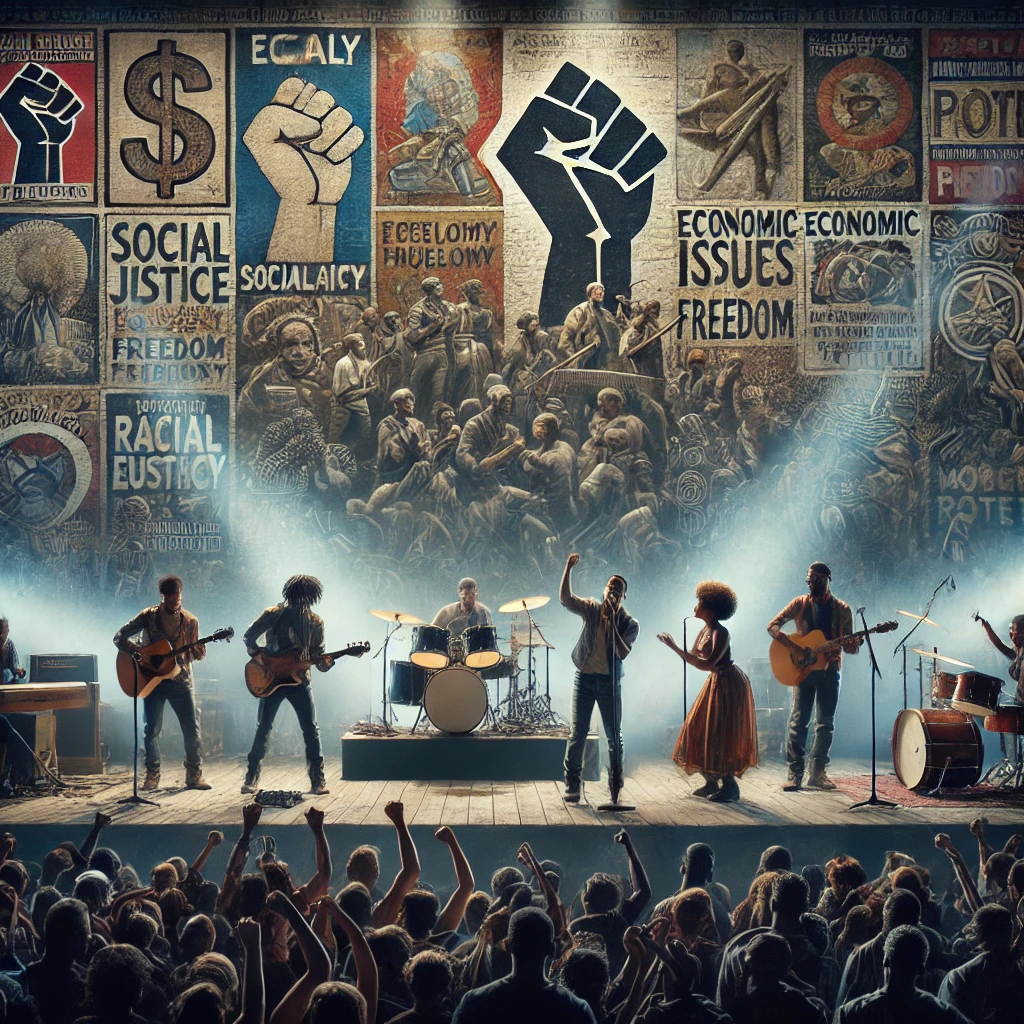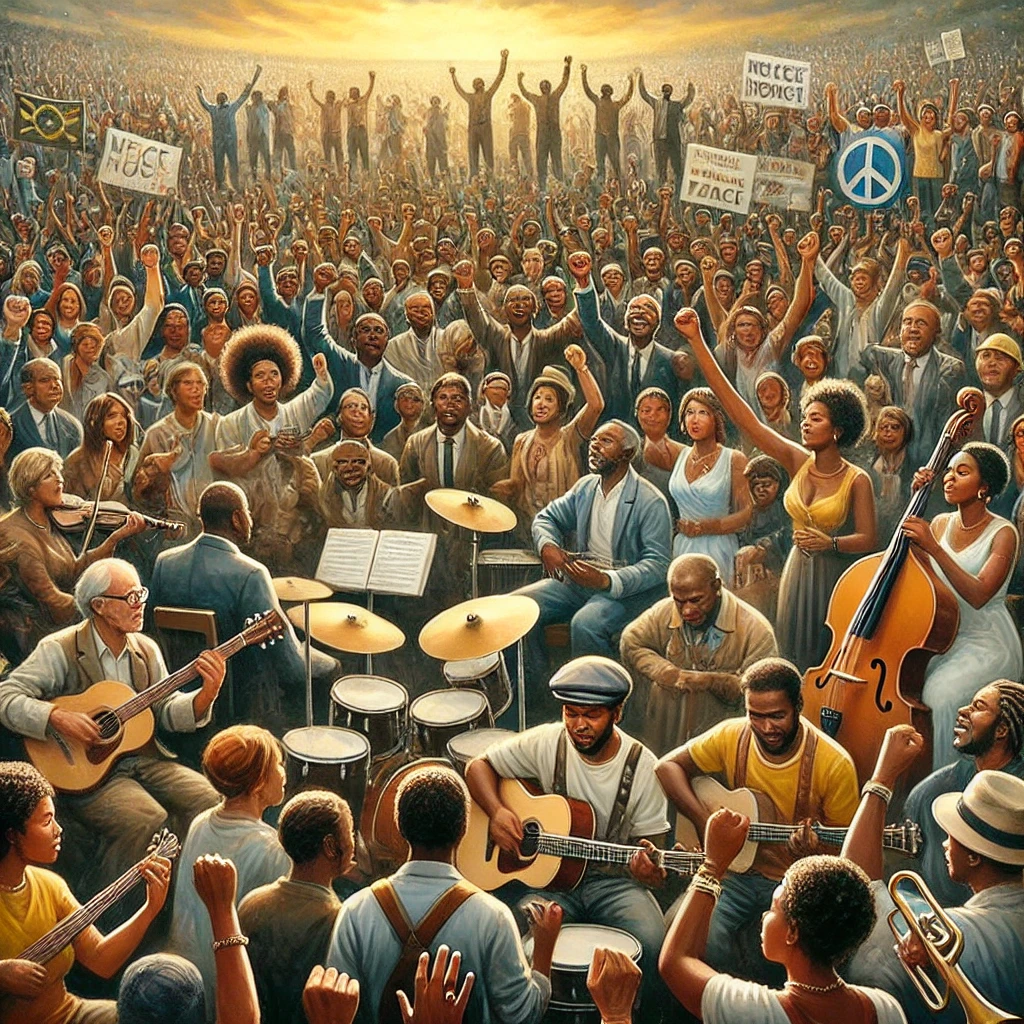Music has long been a powerful societal force, reflecting and responding to political and social climates. From protest songs during the Civil Rights Movement to contemporary hip-hop calling out systemic issues, the link between politics and music is undeniable. Politics shape music by influencing artists’ themes and concerns, while music, in turn, can shape politics by inspiring and mobilizing listeners. This article explores how politics influence music and how artists and fans can leverage this relationship to foster change, unity, and awareness.
 Political Climate and Themes in Music
Political Climate and Themes in Music
The political environment shapes artists’ messages, often pushing them to comment on social justice, freedom, and equality. During heightened political tension, musicians feel compelled to create music that reflects their communities’ struggles, hopes, and frustrations.
-
- Examples of Political Music:
- 1960s Civil Rights Movement: Songs like Sam Cooke’s “A Change is Gonna Come” and Bob Dylan’s “The Times They Are A-Changin'” became anthems of hope and resistance.
- Modern Hip-Hop: Artists like Kendrick Lamar and Childish Gambino address systemic racism and police brutality, with Lamar’s album “To Pimp a Butterfly” tackling complex social and political themes, celebrating Black identity, and confronting racial inequality.
- Examples of Political Music:
- Government Policies and Creative Freedoms
Government regulations directly impact the music industry, affecting creative freedoms through:- Copyright laws and freedom of speech protections
- Arts funding, which can limit or support artistic expression
In societies with restricted freedom of expression, censorship pushes artists to find creative ways to voice dissent. In contrast, in more liberal societies, funding cuts and restrictive copyright laws can limit creative freedom and financial stability.
in more liberal societies, funding cuts and restrictive copyright laws can limit creative freedom and financial stability.
Political influence on music extends beyond legislation to encompass societal challenges, such as racism, economic inequality, and gender discrimination. When these issues reach public consciousness, they inspire artists to speak out, using music as an emotional bridge to connect with audiences personally.
- Genres Rooted in Social Commentary
- Punk Rock: Known for its anti-establishment ethos, punk emerged from economic hardship and political disenfranchisement in the 1970s.
- Hip-Hop: Developed within marginalized Black communities in New York City, it addresses issues of poverty, police violence, and identity.
- Socially Conscious Artists Across Genres
Even outside genres like punk and hip-hop, political influence is strong. Billie Eilish and U2 have used their platforms to address climate change, mental health, and social justice, sparking discussions beyond just music.
How Artists and Fans Can Leverage the Political Power of Music

Artists:
- Collaborate with Activists and Organizations: Amplify social issues through music and collaborations.
- Use Social Media Platforms: Engage a global audience instantly via Twitter, Instagram, and YouTube.
- Participate in Benefit Concerts: Raise funds for important causes through live performances.
Fans:
- Support Artists Who Promote Social Change: Attend concerts, purchase music, and engage with content that highlights critical issues.
- Join Online Communities: Participate in music and activism-focused communities that discuss social topics.
- Amplify Messages through Social Media: Share music with messages of change, influencing conversations and mobilizing others.
Example: Fans of artists like Beyoncé and Greta Van Fleet often create communities that promote the social issues discussed in their music, spreading awareness beyond the music itself.
Music as a Form of Unity and Resistance
 Music and politics together provide unique opportunities for both unity and resistance:
Music and politics together provide unique opportunities for both unity and resistance:
- In Times of Political Unrest: Music empowers and reminds listeners they aren’t alone. Events like the anti-apartheid concerts of the 1980s and the Black Lives Matter protests demonstrate how music can become a rallying cry for justice.
- Bridging Differences: Music connects people around shared causes. Artists create a shared vision for the future by addressing political issues and uniting listeners with similar values.


